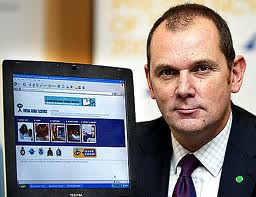If you’ve never seen X Factor, this will mean nothing to you.
If you have, sit back and enjoy. Very, very clever.
(via @TomDavenport)
Putting the 'happy' back into content
If you’ve never seen X Factor, this will mean nothing to you.
If you have, sit back and enjoy. Very, very clever.
(via @TomDavenport)
 Today in the car, I suddenly realised, after 20 minutes of paying no attention, that I was listening to the aural wonder that is Heart Radio.
Today in the car, I suddenly realised, after 20 minutes of paying no attention, that I was listening to the aural wonder that is Heart Radio.
Now I could probably fill an entire blog with my thoughts on Heart, but my observation today was specifically about the DJ, or rather the lack of it.
Every Sunday from 12-4pm, Heart employs that well-known radio presenter Jason Donovan – yes, that’s right – Jason Donovan. Now, correct me if I’m wrong, but Donovan’s CV over the years may have included a number of TV, film and singing highlights, but at no point did he train to become a DJ.
Worse still, during the 20 minutes I was tuned in to Heart, I heard Donovan talk for just 90 seconds. Now, if that is a representative average, that adds up to a total of 18 minutes over a four-hour show, which is completely astonishing.
At a guess Jason Donovan is probably paid around £50k a year, so with maybe 4 weekends off a year, he’s pulling in £57 for every minute he actually speaks on the radio. A gig that I’d gladly take.
Aha, you’re saying, but he does a four-hour show every Sunday. There’s a bit more to it than simply speaking.
The thing is, though, DJs no longer really have to do what we once expected of them in the glory days of radio. The likes of Kenny Everett splicing his own shows together is long gone. Very few DJs choose their own records, even fewer actually know how to use the electronics. The reason Mr D got the job was because he’s a name. And he’s a name that appeals to the radio station’s core demographic – in this case, 30/40-something women who remember the 80s exceptionally well.
And, on the face of it, it would make sense if it weren’t the fact that his presence on the radio is barely enough to warrant people tuning in. People listen to Heart for the, ahem, ‘more music variety’, not who presents the show.
But it’s not just Heart who are guilty of promoting celebs who have no experience into relatively high-profile shows. Radio 2 have done it on more than one occasion. Davina McCall famously stood in for Ken Bruce back in 2007 and provoked 150 complaints.
More recently, Patrick Kielty – let’s face it, a dodgy Irish comedian – has inveigled himself onto the network, for no other reason than he’s mildly famous (having heard him, it surely isn’t for his broadcasting technique).
What’s more irritating is that every time a non-radio person gets him or herself onto the radio, it stops someone who has learned their trade and probably deserves their chance more. Is it really that important for radio stations to pull in a ‘name’ just for quick, cheap listening numbers, rather than try someone who actually has experience, but no ‘reputation’?
Interestingly, radio listening figures are at their highest for many years, so the fact that ‘celebs’ are infilitrating the airwaves doesn’t seem to have made that much difference, but it would be nice if at least some of the radio stations gave credence to substance over style.
 News that Jim Gamble, head of the Children Exploitation and Online Protection Agency (CEOP), has resigned is a huge blow.
News that Jim Gamble, head of the Children Exploitation and Online Protection Agency (CEOP), has resigned is a huge blow.
Previously, I worked at AOL on the Youth proposition for almost 3 years and came into contact with him on a number of occasions and was always very impressed with him.
As CEOP’s head, he was occasionally accused of being too combative, but since CEOP was launched in 2006, it’s undeniable that the agency (under Gamble’s leadership) has done a huge amount of very successful work highlighting the problem of cyberbullying and protecting kids online.
Cyberbullying is one of those crimes that are often viewed as being silly or unimportant if they haven’t happened to you or a close contact.
That Gamble managed to force the issues into the wider sphere so successfully is to be applauded and his stance that caused him to resign – not wanting CEOP to becoming dissolved into a National Crime Agency – is admirable.
It’s interesting to see that those who are most upset by Jim Gamble’s resignation and Theresa May’s plans are on the more political side – campaigners, politicians and the police – while the ones who are quietly smug are the ISPs, who are making money out of the internet – potentially at the expense of kids’ safety.
It’s an issue on which I sit squarely in the middle. Those who seek to try to control the internet are frankly deluded and, while trying to impose rules and conditions makes a lot of sense in theory, its free and liberating nature will always make it a breeding ground for both good and evil.
However, ISPs still do not do enough to help protect the innocent online. The internet is somewhere where innovation and technology can easily be used for good. Granted there’s far less money in offering broadband than there used to be, but it wouldn’t take too much work to try and introduce some industry-wide safety and security tools to help and protect kids online.
Not too much to ask for really, is it?